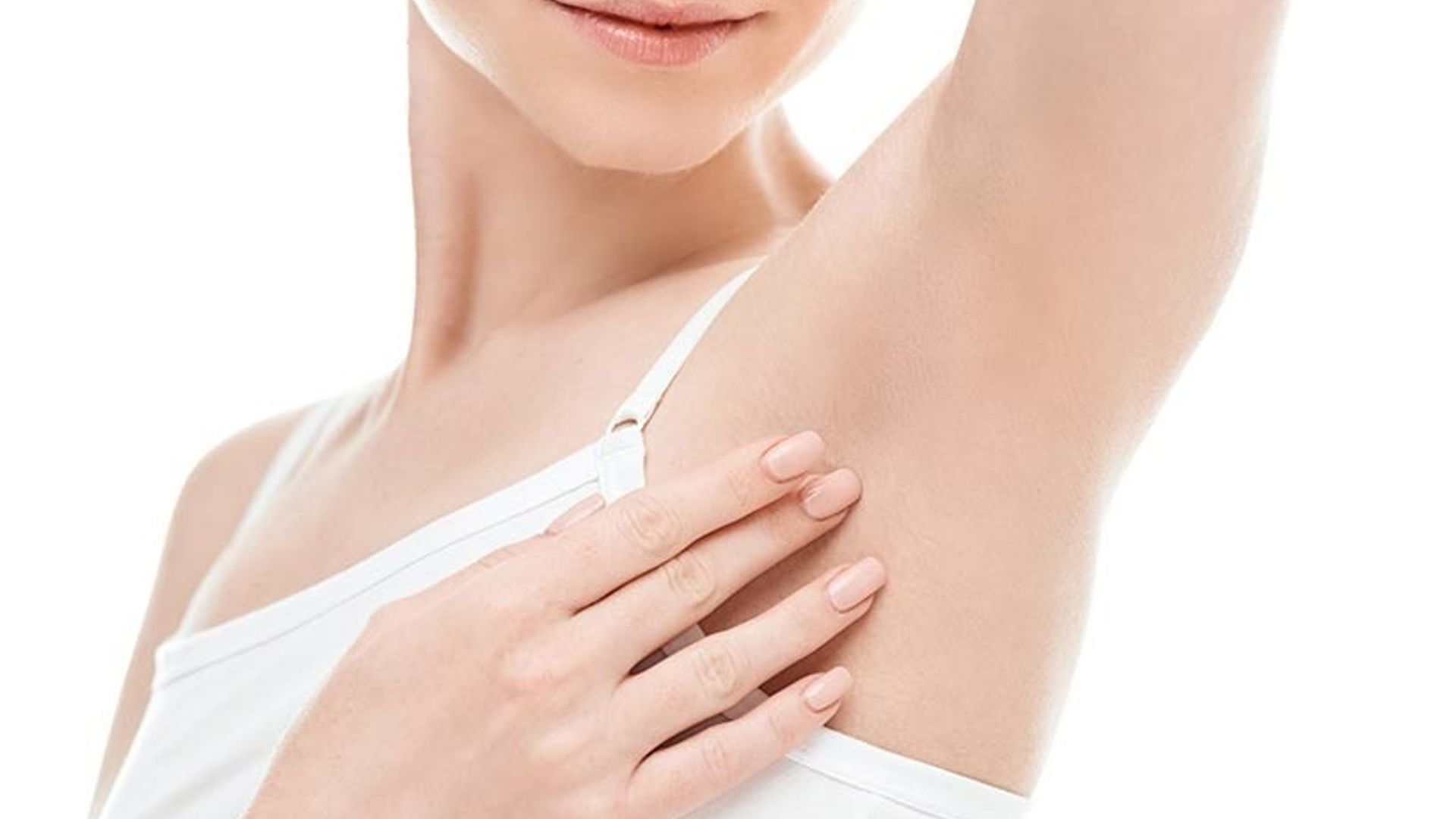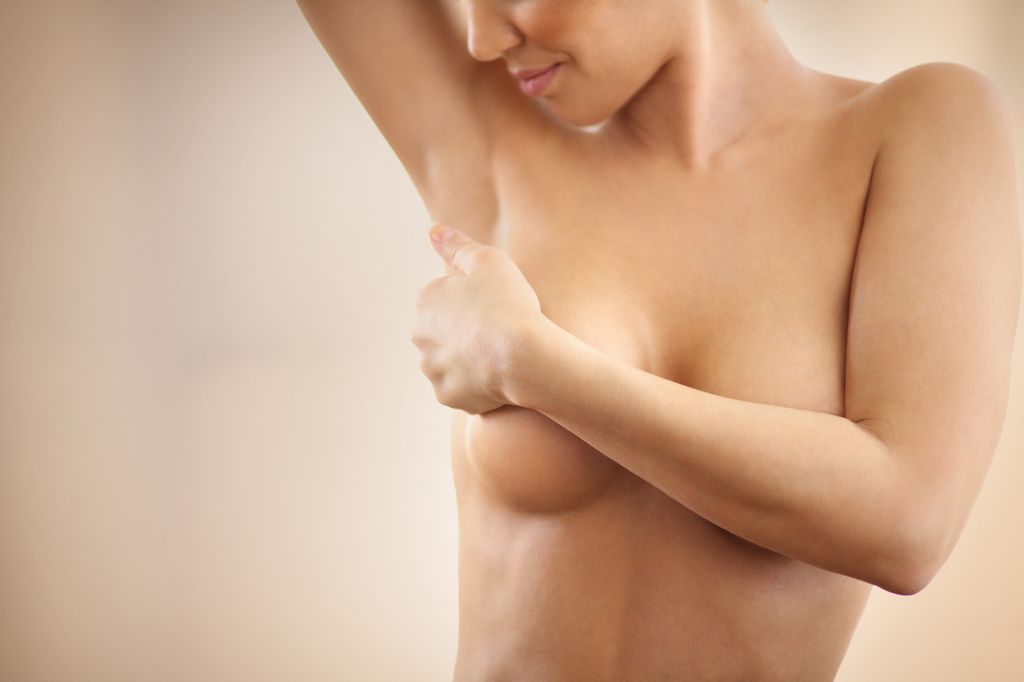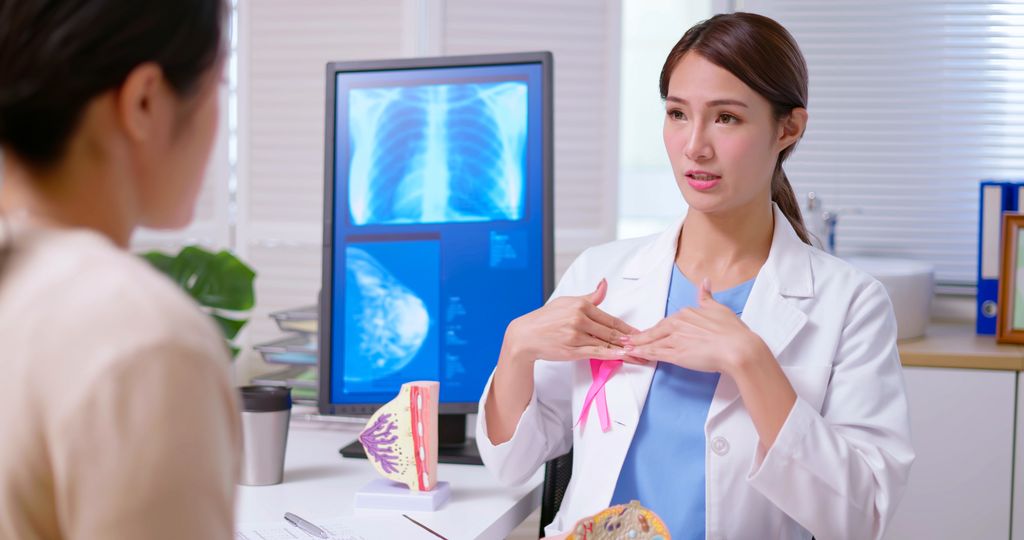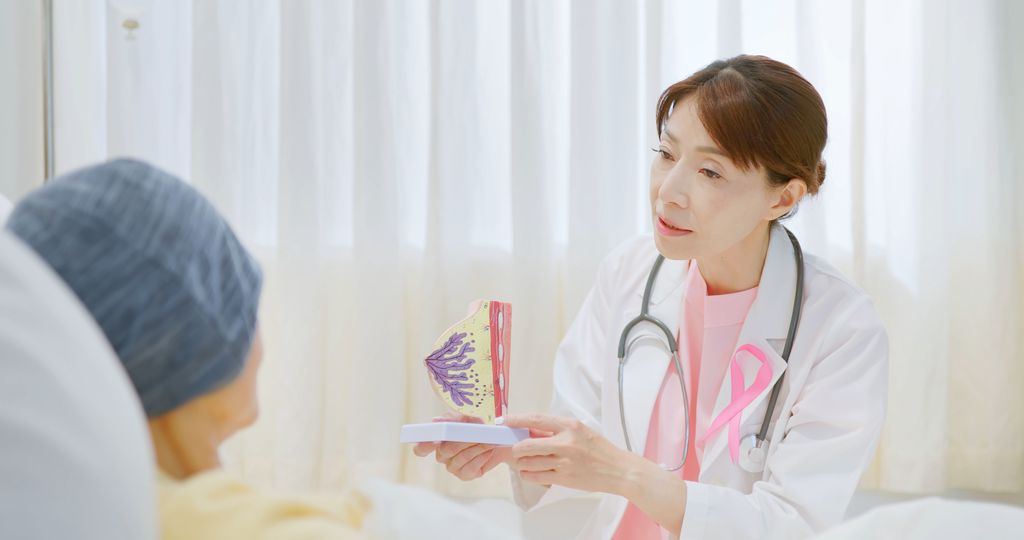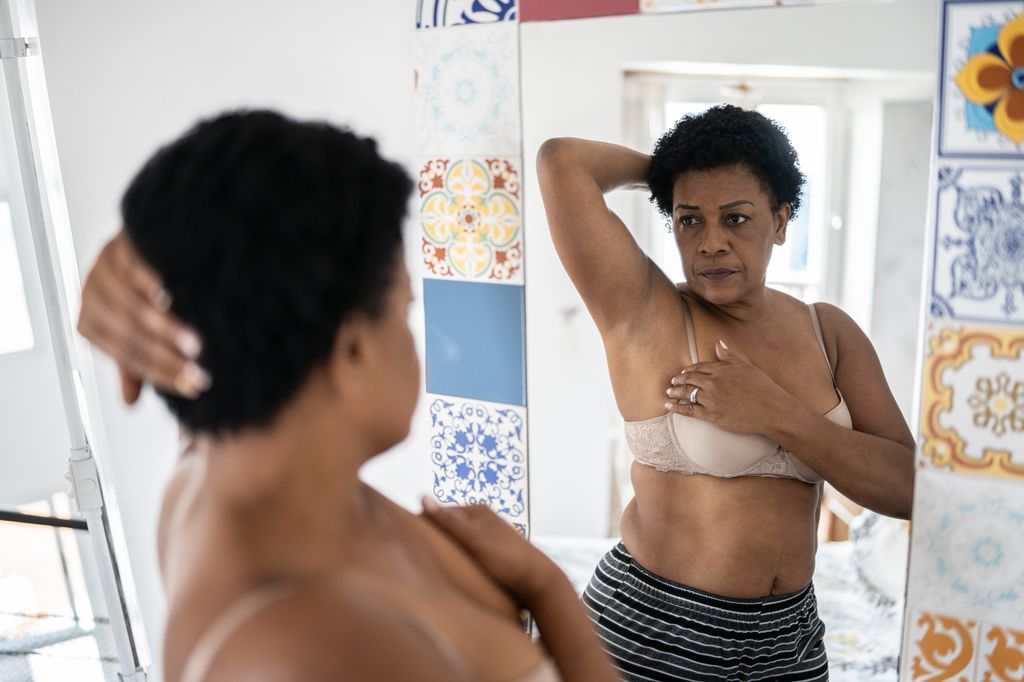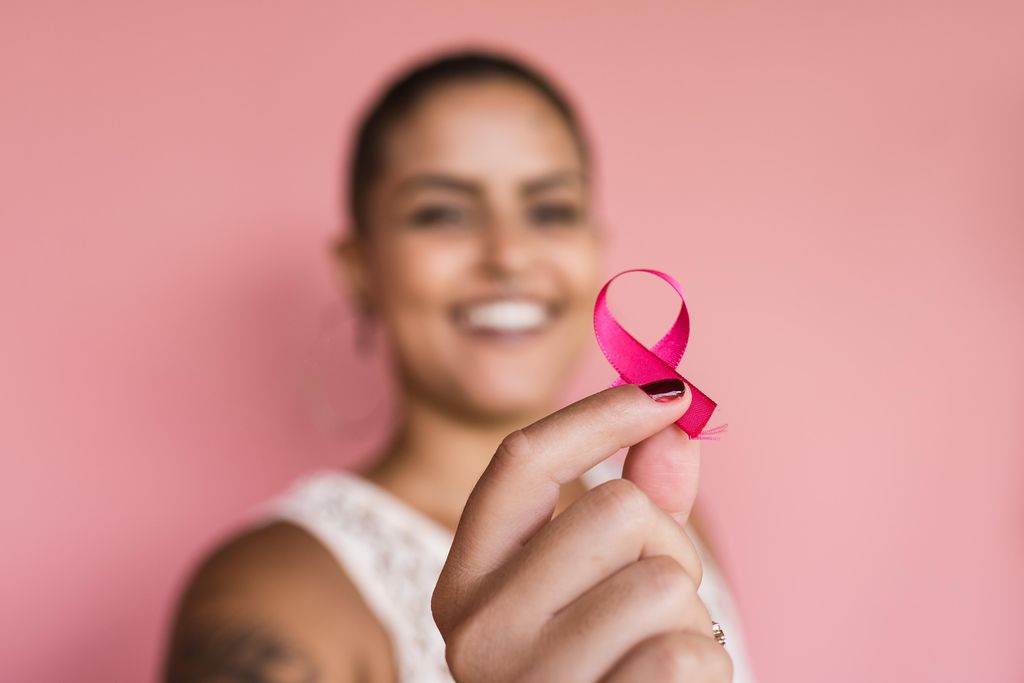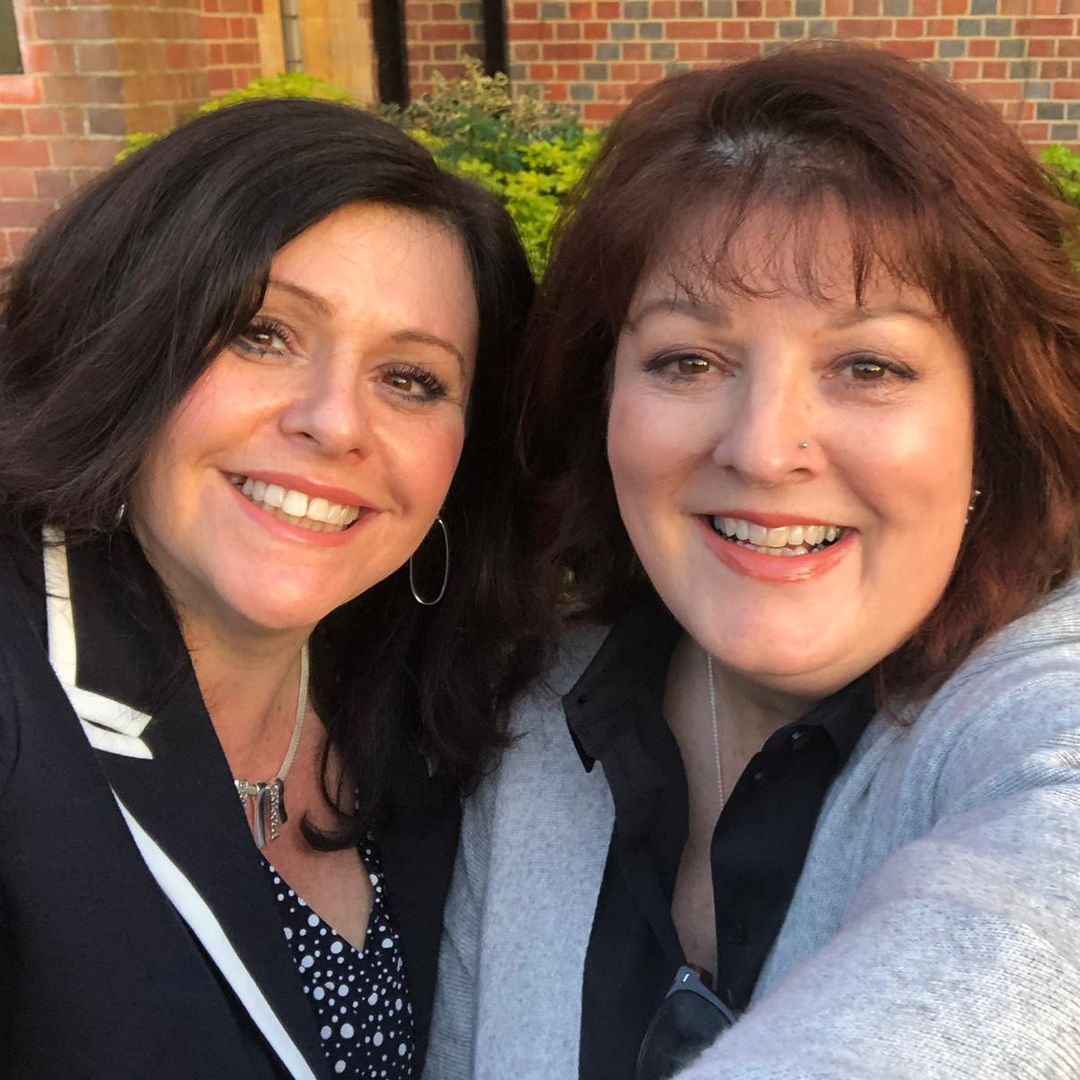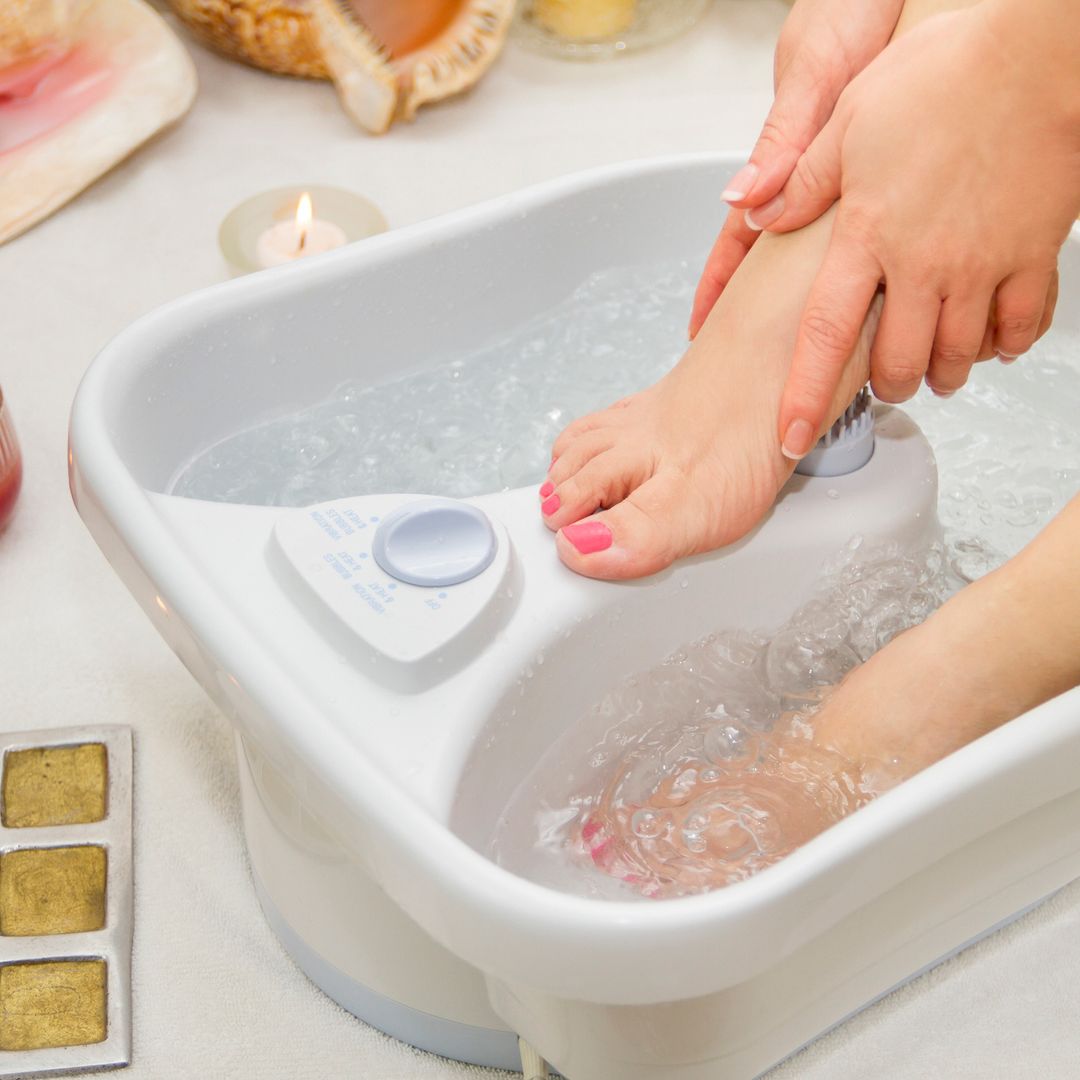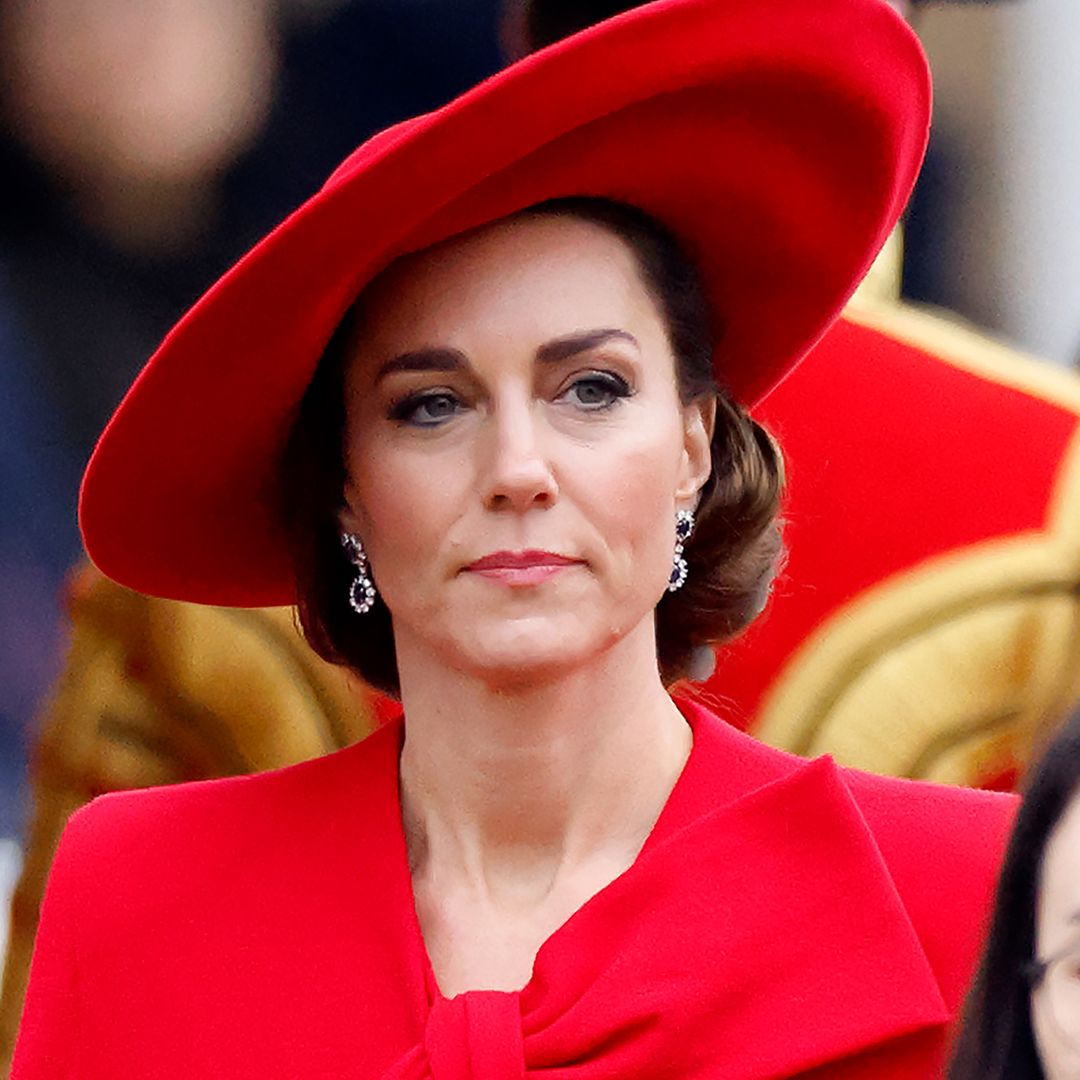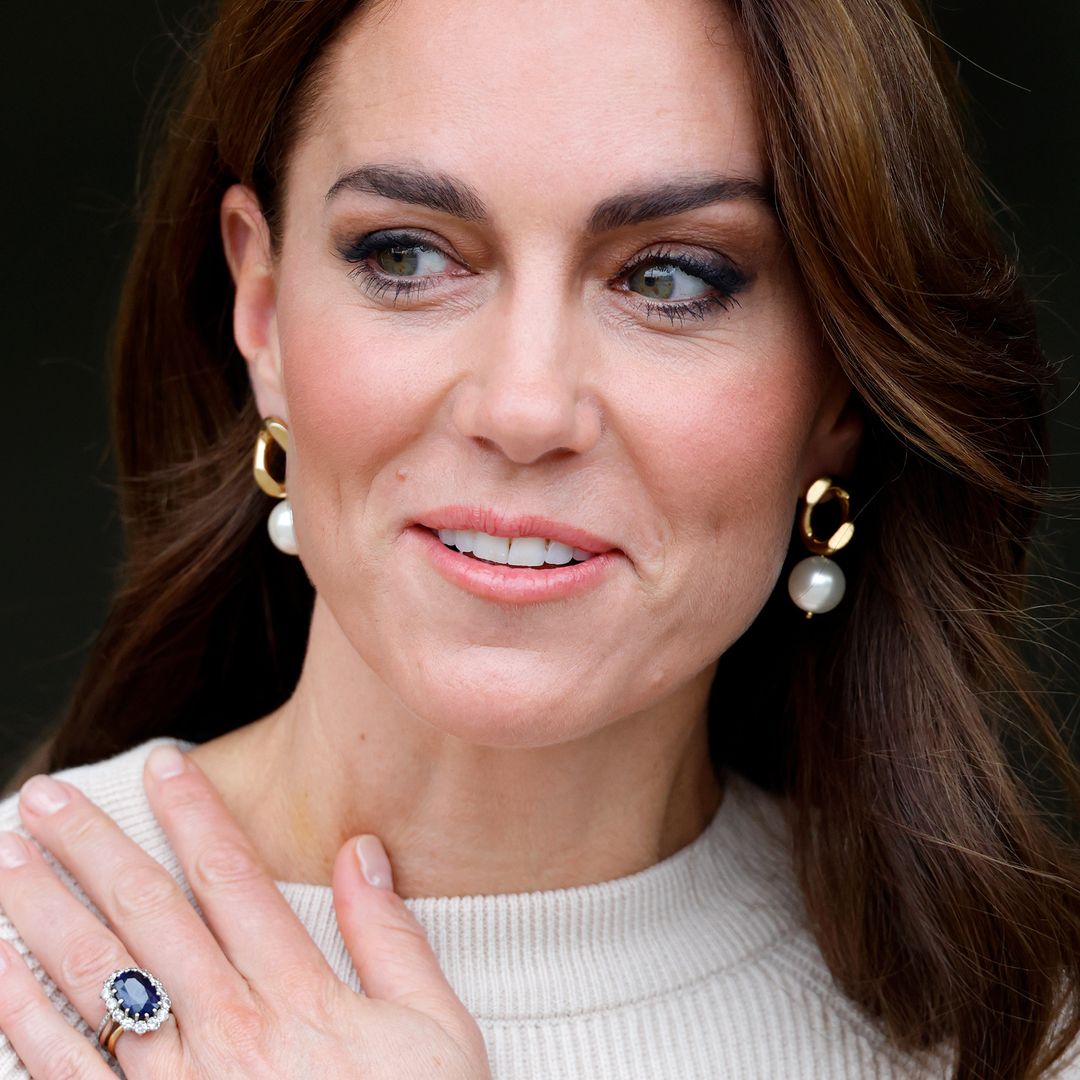Breast cancer is one of the most common cancers in the UK, with one in seven women diagnosed with the disease in their lifetime. More than 80% of breast cancers occur in women over 50 and the risk continues to increase with age.
However, treatments can be very effective if the symptoms are caught early. With brave women like Strictly Come Dancing's Amy Dowden, 33, speaking openly about "taking back control" during her ongoing cancer battle, we look at the signs and symptoms of the disease, as well as treatment options during Breast Cancer Awareness Month.
What is breast cancer?
There are two main types of breast cancer - non-invasive, which is found in the ducts of the breast, and invasive, which develops in the cells that line the breast ducts. The three main risk factors of breast cancer are being a woman (over 99 percent of new cases of breast cancer are in women), getting older (more than 80 percent of breast cancers occur in women over 50), and having a family history of the disease. Around five percent of people diagnosed with breast cancer have inherited a faulty BRCA1 or BRCA2 gene.
Other less common forms of cancer include invasive (and pre-invasive) lobular breast cancer which begins in the milk-producing glands and inflammatory breast cancer where cancer cells block lymph vessels.
What are the symptoms of breast cancer?
Antigone Johnstone-Burt, Breast Clinical Nurse Specialist and Macmillan Genomics Clinical Fellow informs us that it is important to check for symptoms beyond the breast area. "Symptoms of breast cancer that can go unnoticed more often are those which aren’t on the breast itself, such as a lump in the armpit," the specialist tells us.
According to Breast Cancer Care, signs and symptoms of breast cancer can include the following:
- a change in size or shape
- a lump or area that feels thicker than the rest of the breast
- a change in skin texture such as puckering or dimpling (like the skin of an orange)
- redness or rash on the skin and/or around the nipple
- your nipple has become pulled in or looks different, for example, changed its position or shape
- liquid that comes from the nipple without squeezing
- pain in your breast or your armpit that’s there all or almost all of the time
- a swelling in your armpit or around your collarbone
How is breast cancer diagnosed?
If you notice any of the signs or symptoms above, it is important to visit your GP as soon as possible, who may refer you to a breast clinic. Here you will usually have a breast examination followed by one or more tests, such as a mammogram, ultrasound scan, core biopsy or fine needle aspiration. Results from these tests will determine whether or not you have breast cancer.
Have your mammograms
A mammogram is a breast X-ray that is available on the NHS which looks for signs of cancer. Women between the ages of 50 and 71 will be offered a mammogram automatically by their GP practice every three years and those over the age of 71 can continue to go for a mammogram by contacting their local screening unit through the NHS website or via their GP directly. Equally, if you have a family history of breast cancer, UK guidelines recommend going for a mammogram when you reach your forties.
During a mammogram, the patient is asked to remove their clothes from the waist up and their breasts are placed into an X-ray machine one at a time for images to be taken. According to the NHS website, the screening should take about half an hour. Patients will receive their results via the post and so will their GP.
Whilst only 4% of women are called back to a breast clinic after their screening, most will not have cancer but are recalled for a further breast examination, further scans, or a biopsy – where a small tissue sample is collected.
The sooner breast cancer is found, the higher the success rates of treatment so going for your mammograms when you are contacted is paramount. According to Breast Cancer Now, screening prevents an estimated 1,300 deaths from breast cancer every year in the UK.
What are the best methods for checking your breasts?
According to the charity Breast Cancer Now, breast cancer can develop in the three years between each mammogram so checking your breasts regularly yourself is important.
According to Antigone Johnstone-Burt, "There isn’t one specific way to check your breasts, but you should be checking them regularly so you’re aware of any new or unusual changes." She offers the following advice for checking your breasts properly:
- check what your breasts feel like at different times of the month because the menstrual cycle can cause changes too
- you can check your breasts standing up or lying down. Some people find it easiest to do this when they’re lying in bed, or in the bath or shower
- using the pads of your fingers, feel all over the breasts, all the way up to your collarbone and armpits
- make sure to regularly look in a mirror for any visible changes to your breasts as well
What are the treatments for breast cancer?
Treatments for breast cancer include surgery, chemotherapy and radiotherapy. Hormone or biological treatments are also used in some cases. Treatments can be very effective and almost nine in ten women survive breast cancer for five years or more. According to the NHS website, you can have one of these treatments or a combination depending on how the cancer was diagnosed and what stage it is at.
When deciding on a treatment plan, your doctors will consider:
- the stage and grade of the cancer, that is how big the growth is and how far it has spread
- your general state of health
- whether you have or are going through the menopause
Surgery is usually the first port of call and is usually followed up by chemotherapy or radiotherapy or, in some cases, hormone or targeted therapies. For further information regarding the details of each type of treatment, visit the NHS dedicated treatment page.
Staying healthy
According to Dr. Linda de Caestecker, Consultant Advisor to Goldster.co.uk, a digital platform for healthy living & aging, staying physically fit and healthy will mean that if you are diagnosed with breast cancer, you will have a better chance of recovery. "Being more physically active doesn’t just reduce your risk of breast cancer but also increases your chance of recovery if you do get it so stay or become active in walking, exercise classes or whatever you most enjoy," the doctor says.
"Maintain a healthy weight or lose weight if required. Again this reduces your risk and your outcome if you have breast cancer," she continues. And, of course, keeping your alcohol intake to a healthy level is key too.
DISCOVER: Breast Cancer Awareness Month 2023: The brands donating - and how you can support
Most importantly, if you notice changes in your breasts or the surrounding area or are experiencing pain, contact your GP as soon as possible.
For information and support about the signs, symptoms or treatment of breast cancer, the Macmillan Support Line is free and open 7 days a week (8am-8pm) on 0808 808 00 00. Alternatively, consult the NHS dedicated page. For more information visit breastcancercare.org.uk.
